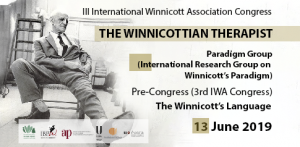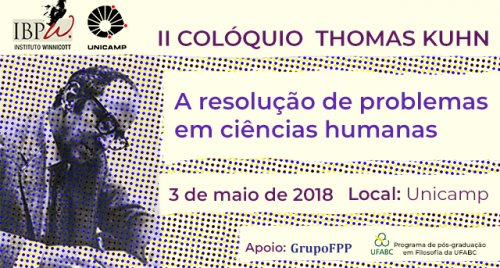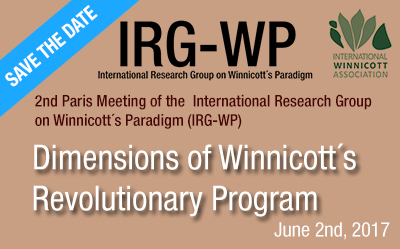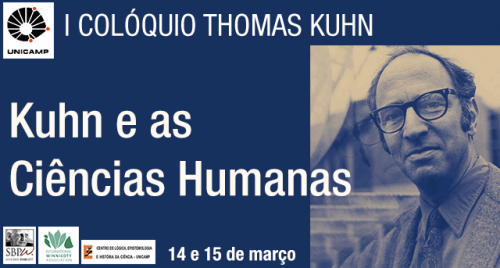[vc_row][vc_column][vc_column_text]
EVENT HISTORY
[/vc_column_text][/vc_column][/vc_row][vc_row][vc_column]EVENTSPROJECT[/vc_column][/vc_row][vc_row][vc_column][vc_tta_accordion][vc_tta_section title=”2019 The Winnicott Language” tab_id=”1560366549797-30830b8f-12a8″][vc_column_text]
PRE CONGRESS
3rd IWA CONGRESS: THE WINNICOTTIAN THERAPIST
PARADIGM GROUP-INTERNATIONAL RESEARCH GROUP ON WINNICOTT’S PARADIGM
THE WINNICOTT’S LANGUAGE
CONFERENCES |
Chenxi Wei (Kevin)
Psychotherapist (Winnicottian theoretical and clinical approach)Translator of psychotherapist’s training programs. Registered psychologist of Chinese Psychological Society (CPS)Secretary of Beijing Winnicott Study and Research GroupMaster student in Philosophy of Psychoanalysis at Universidade Estadual de Campinas (UNICAMP). Affiliated student of IBPW.Member of IWATranslator of Winnicott’s books’ and related works’ translation into Chinese- Translator of The Child, the Family, and the Outside World, D.W.Winnicott.- Co-translator of The Maturational Processes and the Facilitating Environment, D.W.Winnicott, and Winnicott’s Theory of Maturational Processes, Elsa Oliveira Dias.
Winnicott’s Language in the Chinese Context | Linguagem de Winnicott no contexto chinês
As more and more study groups and training programs of Winnicottian theory and clinical practice have been established in China, a very practical issue arises: how to translate Winnicott’s language into Chinese? According to Kuhn’s notion of paradigm, the translation from Winnicott’s english – theoretical terms and common words – to mandarin will nevertheless encounter the local incommensurability. This tentative presentation will try to illustrate with examples how Winnicott’s language of his maturational theory, of his psychoanalytic terms, and of his common words are translated into mandarin. Thus it may draw attention that it may not be translation, but interpretation, which requires the translator’s comprehensive understanding of Winnicottian paradigm to conduct a better work.
Elsa Oliveira Dias: O vocabulário do novo paradigma | The vocabulary of the new paradigm
Psychoanalyst. Master of Arts in Philosophy at Pontifical Catholic University of São Paulo (PUCSP). Ph.D. in Clinical Psychology at PUCSP, with thesis: The Theory of Psychosis in D.W. Winnicott. Founder, together with Zeljko Loparic, of Brazilian Society of Winnicottian Psychoanalysis (SBPW, 2005). Vice-chairman of the International Winnicottian Psychoanalysis (IWA, 2014). Author of the books Winnicott’s Theory of The Maturational Processes (2016) by Karnac Books; Sobre a Confiabilidade e Outros Estudos (2011) (On Reliability and other studies) and Interpretação e Manejo na Clínica Winnicottiana (2014) (Interpretation and Management in Winnicottian Clinic), both by DWW Editorial.
Irene Borges Duarte
Professora associada na Universidade de Évora (desde 1996), depois de vários anos de investigadora e docente na Universidade Complutense de Madrid. Formação em Filosofia nas Universidades de Lisboa (Licenciatura, 1974; Mestrado, 1988) e de Madrid (Doutoramento, Universidade Complutense, 1994), com especialização em Fenomenologia nas Universidades de Freiburg im Breisgau e Mainz. Diretora do Curso de Doutoramento em Filosofia (UÉ, 2011-2017). Presidente da Associação Portuguesa de Filosofia Fenomenológica (2011-2018). Membro da Associação Portuguesa de Psicanálise e Psicoterapia Psicanalítica, da Sociedad Iberoamericana de Estudios Heideggerianos, e do Grupo de Investigação Paradigma Winnicottiano. Pertence ao Advisory Board da revista Heidegger-Studies (Berlim).
O gesto espontâneo e o terapeuta: a linguagem da autenticidade | Spontaneous movement and the therapist: a language of authenticity
Uma das inovações que Winnicott introduz na metodologia clínica é a sua especial valorização e aproveitamento do «gesto espontâneo» infantil no contexto terapêutico. A consideração do gesto, tradicionalmente despreciado na perspectiva da racionalidade e, por isso, tão tardiamente tido em conta pelo pensamento, marca, decerto, uma viragem na definição do ser humano. O esforço de Winnicott, por um lado, e da fenomenologia, por outro, contribuiu de forma fundamental para uma melhor compreensão do longo trajecto vital na sua realização existencial. O presente trabalho procura caracterizar esse esforço e defender que a autenticidade do gesto na espontaneidade do rabisco infantil é necessariamente correlativa da mesma espontaneidade do terapeuta, enquanto abertura acolhedora e não interpretativa, e que ambas na sua correlação configuram o que poderia ser o «ser-o-aí» humano no sentido mais propriamente heideggeriano.
Leticia Minhot
Leticia Minhot holds a degree in Philosophy from the Universidad Nacional de Córdoba -UNC, Argentina- and PhD in Philosophy from the University of Campinas -UNICAMP, Brazil-. She is Professor in the Universidad Nacional de Córdoba in the Faculties of Psychology and Social Sciences. She is in charge of the Chairs of Epistemological Problems of Psychology and Philosophical Conceptions. Author of the book La Mirada psicoanalítica. She has numerous writings on Winnicott. She has focused on the study of the Winnicottian disciplinary matrix.
Spinoza, the ethics of Lacanian psychoanalysis and the ethics of care
As Žižek maintains, a mandate from the current academy, from France to the United States, is to love Spinoza. All declare themselves Spinozists: the Althusserians, the Deleuzians, the feminists, many anti-Hegelians and, of course, Lacan and many Lacanians. Spinoza, in the seventeenth century, considers that the essence of man is desire. Lacan, in the twentieth, seeks to reunite Ethics with the conception of Freudian psychoanalysis about desire. In this work, we seek a dialogue between this ethic crossed by the thought of Spinoza and the ethics of care derived from the Winnicottian conception. For Lacan, the psychoanalytic ethic, that is, the horizon through which the analytic experience must go is whether your actions has been carried out in accordance with the desire. The Lacanian concept of real incorporates the argumental logic with which Spinoza supports the idea of the perfection of the being. The ethic of care, in opposition, has the basement on the original precariousness of the being. In this opposition, we are going to find bases to reinforce our idea that both authors belong to different paradigms.
Spinoza, a ética da psicanálise lacaniana e a ética do cuidado
Como Žižek sustenta, um mandato da academia atual, da França aos Estados Unidos, é amar Spinoza. Todos se declaram espinosistas: althusserianos, deleuzianos, feministas, muitos anti-hegelianos e, claro, Lacan e muitos lacanianos. Espinosa, no século XVII, considera que a essência do homem é o desejo. Lacan, no século XX, busca reunir a ética com a concepção da psicanálise freudiana sobre o desejo. Neste trabalho buscamos um diálogo entre essa ética atravessada pelo pensamento de Spinoza e a ética do cuidado derivada da concepção winnicottiana. Para Lacan, a ética psicanalítica, isto é, o horizonte através do qual a experiência analítica deve ir, é se nossos atos são realizados de acordo com o desejo. O conceito lacaniano do real incorpora a lógica argumentativa com a qual Spinoza apoia a ideia da perfeição do ser. A ética do cuidado, em oposição, baseia-se na precariedade original do ser. Nesta oposição, vamos encontrar bases para reforçar nossa ideia de que ambos os autores pertencem a diferentes paradigmas.
Loris Notturni
2005: Bachelor in Philosophy (Epistemology and Philosophy of Langage), 2007 : Master in Philosophy (on the problem of illusion in the theoretical part of Kant’s criticism), 2008 Agrégation in Philosophy (Moral and Ethics), 2011, PhD Research Scolarship in São Paulo (SBPW), 2010 – PhD in Philosophical Anthropology (Defence scheduled in 2016), Teaching Fellow in Liège University (“Lectures of Modern Philosophy” – BAC3), Founder of the Groupe d’Etudes Winnicottiennes, in the Université de Liège (Bélgique), IWA Secretary-General.
Teleologia e paradoxo no pensamento clínico de Winnicott
In this talk my aim is at underlining that a teleological approach to life — and more specificaly to humain life — underlies the epistemological consistency of the maturational process theory. In this respect I will point out the role of paradox in the formulation of clinical problems in Winnicott’s clinical work.
Teleologia e paradoxo no pensamento clínico de Winnicott
Nesta palestra, o meu objectivo é sublinhar que uma abordagem teleológica da vida – e mais especificamente da vida humana – está subjacente à consistência epistemológica da teoria do amadurecimento de Winnicott. A este respeito, eu salientarei o papel do paradoxo na formulação de problemas clínicos no trabalho clínico de Winnicott.
Ofra Eshel | Winnicott’s clinical revision: Care-cure, working within the realm of needs, and creating new experiences
Ofra Eshel, Psy.D., is faculty, training and supervising analyst of the Israel Psychoanalytic Society, and a member of the International Psychoanalytical Association (IPA); co-founder and former coordinator of the Program of Psy-choanalytic Psychotherapy for Advanced Psychotherapists at the Israel Psy-choanalytic Institute, and of the Israel Winnicott Center, and on the Advisory Board of the International Winnicott Association (IWA); founder and head of the post-graduate track “Independent Psychoanalysis: Radical Break-throughs” (2016) at the advanced studies of the Program of Psychotherapy, Sackler Faculty of Medicine, Tel-Aviv University. She is the book review editor of Sihot-Dialogue, Israel Journal of Psychotherapy. She was the recipient of the Leonard J. Comess Fund grant at the New Center for Psychoanalysis (NCP), Los Angeles, 2011; and awarded the Frances Tustin Memorial Prize for 2013.
Zeljko Loparic
Zeljko Loparic has a PhD in philosophy and since 1984 teaches philosophy and history of psychoanalysis at different universities in Brazil and abroad. In 2005 he founded, together with Elsa Oliveira Dias, the Brazilian Society of Winnicottian Psychoanalysis (SBPW). In 2013 he founded and was elected president of the International Winnicott Association (IWA). In 2014 he started teaching the Sino-Brazilian Training Course in Winnicottian Psychoanalysis in Beijing. In 2015 he promoted the foundation of the Brazilian Institute of Winnicottian Psychoanalysis (IBPW), which in 2017 initiated a full 4-year Training Course in Winnicottian Psychoanalysis for Chinese Candidates. He authored (in Portuguese) Heidegger Defendant (1990), Ethics and Finitude (1995), Heuristic Descartes (1997), Kant’s Transcendental Semantics (2000), On Responsibility (2003), Heidegger (2004), Winnicott and Jung (2014) and (in English) Winnicott´s New Track (2017), co-edited several collective volumes, and published numerous papers in national and international journals on general philosophy of science (Carnap, Kuhn) and philosophy (mainly Kant and Heidegger) and history of psychoanalysis (Winnicott).
Os problemas maturacionais e sua resolução em Winnicott | Maturational problems and their solution in Winnicott
Retomando uma longa tradição na epistemologia, Kuhn caracterizou a ciência empírica normal como atividade de resolução de problemas e comparou esses problemas a quebra-cabeças. Numa parte inicial do presente trabalho, mostrarei que essa concepção pode ser aplicada à atividade de resolução de problemas clínicos tal como concebida e desenvolvida por Freud. O meu principal objetivo é mostrar que a mesma concepção não se aplica à clínica de Winnicott e que essa diferença é mais um ingrediente da mudança paradigmática operada por Winnicott na psicanálise tradicional.[/vc_column_text][/vc_tta_section][vc_tta_section title=”2018 A Resolução de problemas em Ciências Humanas” tab_id=”1560366549815-c6be2338-5bc5″][vc_column_text]

Partindo da tese de Thomas Kuhn de que a ciência é uma atividade de resolução de problemas, o II Colóquio Thomas Kuhn desafia pesquisadores das Filosofia e ciências humanas a pensar o que é um problema em ciências humanas e como resolvê-lo.
download do caderno de resumos
Palestrantes convidados:
Carlos Alberto Plastino (PUC-RJ/IBPW)
Carlos Motta (FAPCOM)
Daniel Omar Perez (Unicamp)
Paulo Vitor Sanches Lira
Suze Piza (UFABC/IBPW)
Valter Bezerra (USP)
Victor Ximenes Marques (UFABC)
Zeljko Loparic (Unicamp/Puc-PR/IBPW)
8h30 – Abertura dos trabalhos e lançamento do livro: Kuhn e as ciências humanas publicado pela DWW
O livro se originou de trabalhos apresentados e discutidos no “Colóquio Internacional Kuhn e as Ciências Humanas”, realizado nos dias 14 e 15 de março de 2016, na Unicamp, e organizado pelo Grupo de Pesquisa em Filosofia Práticas Psicoterápicas (Grupo FPP), do CNPq, e pelo International Researche Group on Winnicott’s Paradigm (IRG-WP) da International Winnicott Association – IWA. O evento contou com a participação de renomados filósofos da ciência e epistemólogos, além de pensadores de diversas áreas como psicanálise, sociologia e história da ciência.
Mesa 1- 9h às 10h
Filosofia como diagnóstico e ciências humanas como atividade de resolução de problemas
Suze Piza (UFABC)
Resolução de problemas nas Relações internacionais
Paulo Vitor Sanches Lira (UFRJ/USJT)
10h20 Debate
Mesa 2- 10h20 às 11h20
Problemas como unidades epistêmicas
Valter Alnis Bezerra (USP)
Concepção de problema segundo os experimentos mentais.
Carlos Motta (FAPCOM)
11h20 Debate
12h Almoço
Mesa 3- 14h às 15h
É o pensamento kuhniano aplicável aos saberes sobre o homem?
Carlos A. Plastino (PUC-RJ)
Autismo e projeto terapêutico singular
Daniel Omar Perez (UNICAMP)
15h às 15h30 Debate
Café 15h30 às 16h
Mesa 4- 16h às 17h – Conferência
Problemas maturacionais e sua resolução em Winnicott
Zeljko Loparic (UNICAMP/IBPW/IWA)
Mesa 5- 17h às 18h
Por que a interdisciplinaridade é impossível (mas necessária) – complexidade, paradigmas e incomensurabilidade.
Victor Ximenes Marques (UFABC)
A semântica transcendental em W. Dilthey e T. Kuhn: a possibilidade de resolução de problemas em ciências humanas.
Marcos José Alves Lisboa (PUC-Campinas)
18h às 18h20 Debate
Encerramento dos trabalhos.
Comissão organizadora:
Zeljko Loparic
Conceição Serralha
Suze Piza[/vc_column_text][/vc_tta_section][vc_tta_section title=”2017.2 Dimensions of Winnicott’s Revolutionary Program” tab_id=”1560366679601-568f72ce-1cf0″][vc_column_text]
Dimensions of Winnicott´s Revolutionary Program
INTERNATIONAL WINNICOTT ASSOCIATION (IWA)
2nd Paris Meeting of the International Research Group
on Winnicott´s Paradigm (IRG-WP)
Friday, June 2nd, 2017
Société de Psychanalyse Freudienne
23, rue Campagne-Première
75014 Paris
Topic: Dimensions of Winnicott´s Revolutionary Program
The proposal is to explore and discuss at this meeting different components of Winnicott´s paradigm, that is to say, his exemplars, theoretical commitments – guiding generalizations (theory of maturational processes, pathology), operational ontology (theory of human nature), research methods, values-instrumental commitments and clinical procedures. This can be done by direct textual and conceptual analysis or by comparison with components of other psychoanalytic paradigms.
Confirmed speakers
Elsa Oliveira Dias (Brazil)
Irene Borges Duarte (Portugal)
Leticia Minhot (Argentina)
Ofra Eshel (Israel)
Philippe Cabestan (France)
Zeljko Loparic (Brazil)
PROGRAMME
MORNING
Contributions in French
9h00-10h00 Philippe Cabestan
Donald W.Winnicott et la philosophie
Si l’on en croit sa bibliographie, Winnicott ne se risque guerre sur les terres de la philosophie. Sauf erreur de notre part, il n’a jamais écrit sur un philosophe et ses références sont essentiellement psychanalytique : Abraham, Balint, Bion, Ferenczi, Freud, etc. Cependant, la philosophie accorde une place particulière à l’œuvre de Winnicott dans la mesure où, en dépit de son caractère relativement peu systématique, celle-ci soulève des questions auxquelles celle-là tente également de répondre. Qu’il s’agisse de l’enfance, de l’angoisse, de l’imaginaire, du rapport à autrui, du soi et du faux soi, Winnicott est à chaque fois amené à interroger et réélaborer des notions anthropologiquement décisives. Que pouvons-nous retenir de ses recherches ? Telle est la question que nous voudrions aborder d’un point de vue phénoménologique.
10h00-11h00 Irene Borges Duarte
L’absence de projet dans l’expérience du temps. Heidegger, Winnicott et au-delà
L’expérience du temps, dans sa phénoménologie, implique la perception de continuités et de ruptures, d’ extensions et de distentions. Chez Heidegger, on parle d’un horizon temporel et d’ extases, d’ événement historique et d’ événement cairologique, Geschichte et Ereignis. Mais que se passe-t-il lorsque la dynamique vitale projective se coupe et le Dasein ne peut plus créer des possibilités? L’un de ses figurations pourrait être l’ennui, l’ expérience du présent continu. Mais ce n’est pas la seule façon d’ en faire l’expérience. L’idée d’espace potentiel de Winnicott pourrait permettre de mieux comprendre la richesse de vivre cet interrègne vital, dans lequel la vie s’ attarde, le temps suspendu mais pas absent, en attendant ou peut-être avec l’espoir silencieux du Novum. Ma communication, veut avancer un pas vers la compréhension de ces situations existentielles dont la temporalisation du futur n’est plus perçue comme telle.
11h00-11h30 Break/Pause
11h30-12h30 Elsa Oliveira Dias
Le vocabulaire de la révolution winnicottienne
Considérant qu´un nouveau paradigme exige la création d´une nouvelle langue (un nouveau léxique), je me propose à discuter la langue que Winnicott considère appropriée et qu´il utilise pour décrire ses découvertes revolutionaires sur la nature humaine et ses manifestations dans le temps, soit dans la santé soit dans la maladie. Bien que les textes de Winnicott sont délibérément écrits dans un anglais simple et courant, je vais montrer qu’il était extrêmement exigeant dans le choix des termes et des expressions. En même temps, Winnicott se refuse d’utiliser les termes du langage spéciulatif de la métasychologie freudienne (pulsions de vie et de mort, apareil psychique etc.) et introduit sa propre terminologie théorique, non spéculative et plus adequate à la descriptions des périodes et stages de maturation. Et quand il garde les termes consacrés de la psychanalyse traditionnelle, descriptifs ou classificatoirs (psychose, névrose, transfer etc.), il leurs donne un sens nouveau. Non rarement il se plaint de l’utilisation biaisée par certains commentateurs du vocabulaire qu’il a créé pour décrire de nouveaux phénomènes.
AFTERNOOM
Contributions in English
14h00-15h00 Ofra Eshel
Is a faculty member, and training and supervising analyst at the Israel Psychoanalytic Society, and a member of the International Psychoanalytical Association (IPA); co-founder, former coordinator and faculty member of the Program of Psychoanalytic Psychotherapy for Advanced Psychotherapists at the Israel Psychoanalytic Society, and of the Israel Winnicott Center, and she is on the advisory board of the International Winnicott Association (IWA); founder and head of the post-graduate track “Independent Psychoanalysis: Radical Breakthroughs” (2016) at the advanced studies of the Program of Psychotherapy, Sackler Faculty of Medicine, Tel-Aviv University. She is book review editor of Sihot-Dialogue, Israel Journal of Psychotherapy. Her papers were published in psychoanalytic journals and presented at national and international conferences. She was a visiting scholar at the Psychoanalytic Institute of North California (PINC, San Francisco, 2013), received the Leonard J. Comess Fund grant at the New Center for Psychoanalysis (NCP, Los Angeles, 2011), the David Hammond grant at the Massachusetts Institute for Psychoanalysis (MIP, Boston, 2016), and awarded the 2013 Frances Tustin Memorial Prize, and the 2017 Symonds Prize in New York. She was featured in 2012 in Globes (Israel’s financial newspaper and magazine) as sixteenth of the fifty most influential women in Israel. She is in private practice in Tel Aviv, Israel.
Winnicott’s clinical paradigm, the unthinkable breakdown and the concept of clinical regression
Winnicott’s way of thinking, exploring, and practicing psychoanalysis over the years has consistently offered a revolutionary change in psychoanalysis. His core ideas of self-development and human subjectivity evolved out of very early infantile psychic processes and environmental mother-infant relatedness that precede object relationships, and these are powerfully applied to his revolutionary clinical thinking, with its emphasis on regression in the treatment of more disturbed patients. This clinical paradigm means moving experientially beyond the space-time confines of traditional clinical psychoanalysis to work with primal processes in the treatment situation and setting, so that the treatment process actualizes a new experiential possibility within a new psychic environment. Winnicott’s very important late papers, published posthumously, “Fear of breakdown” (1963?, published 1974), and its continuation “Psychology of madness” (1965), and “The concept of clinical regression compared with that of defence organization” (1967), addressthe disastrous impact of being broken down at the beginning of one’s life. The extreme primitive agony of early breakdown or madness is so unthinkable and “indescribably painful” that it cannot be experienced, and a new massive defense organization, displayed as the patient’s illness syndrome, must be constructed against it. The new clinical significance of these ideas is powerfully emphasized by Winnicott himself, from the very beginning of his ”breakdown” paper, and by Clare Winnicott (1974, 1980). It is, therefore, most interesting to see the way he connects this new late understanding with his radical model of regression to dependence and its healing quality in the treatment of severely disturbed patients, in his paper “The concept of clinical regression” (1967).
15h00-16h00 Leticia Minhot
She holds a bachelor’s degree in philosophy from the Universidad Nacional de Córdoba, a doctorate in philosophy from the Universidade Estadual de Campinas; she is a full professor at the Universidad Nacional de Córdoba. Her area of expertise is epistemology of psychoanalysis and political philosophy of science. Author of the book: La mirada psicoanalítica. A Kuhnian analysis of Freud’s psychoanalysis. Compiler in different books, and author of numerous articles in the area. She is editor of the journal Representaciones. Journal of Studies on Representation in Art, Science and Philosophy.
Kuhn´s theory of paradigms today
Our objective delves into some elements of Kuhn’s historical and epistemological project. The aim is not an exegesis of Kuhn’s thought but, rather, a selection of components for the construction of the device from which we will read psychoanalysis in a Kuhnian sense. What is the Kuhnian history? How does this history articulate with its epistemology? Considering Hoyningen-Huene´s thesis (1946/1993) on Kuhn’s project -the plurality of phenomenal worlds-we are enabled to approach the characteristics of the rationality of our time and the place of psychoanalysis in it. If the conditions of possibility of true knowledge are historical, we are empowered to understand the contingency of our own phenomenal present world.
16h00-16h30 Break/Pause
16h30-17h30 Zeljko Loparic
Has a PhD in philosophy and since 1984 teaches philosophy and history of psychoanalysis at different universities in Brazil and abroad. In 2005 he founded, together with Elsa Oliveira Dias, the Brazilian Society of Winnicottian Psychoanalysis (SBPW). In 2013 he founded and was elected president of the International Winnicott Association (IWA). In 2014 he started teaching the Sino-Brazilian Training Course in Winnicottian Psychoanalysis in Beijing. He authored Heidegger Defendant (1990), Ethics and Finitude (1995), Heuristic Descartes (1997), Kant’s Transcendental Semantics (2000), On Responsibility (2003), and Heidegger (2004), Winnicote Jung (2014), Winnicott´s New Track (2017, forthcoming), co-edited several collective volumes, and published numerous papers in national and international journals on general philosophy of science (Carnap, Kuhn) and philosophy (mainly Kant and Heidegger) and history of psychoanalysis (Winnicott).
Elements of Winnicott´s Ontology
The purpose of the present paper is to identify and analyse some of the main universals of Winnicott´s theory of human nature-the ultimate subject-matter of psychoanalysis-such as essential aloneness, urge to exist, illusion of contact, dependence, experience of being, existential paradoxes, tendency towards integration, tendency towards de-integration, integrational (maturational) needs, personality structure and circular structure of life. The proposal will be made that these universals can be viewed as a scientific basis for the elaboration of a kind of philosophical anthropology. Well known traditional philosophical (Kant, Heidegger), religious (Upanishads) and literary (T. S. Eliot) reference points will be used to enrich the discussion.[/vc_column_text][/vc_tta_section][vc_tta_section title=”2017.1 Ontologia e psicanálise” tab_id=”1560366733275-b050f8ec-761b”][vc_column_text]
COLÓQUIO ONTOLOGIA E PSICANÁLISE
O Colóquio “Ontologia e Psicanálise” objetiva promover um debate entre os resultados de pesquisas e projetos em desenvolvimento do Grupo de Pesquisa em Filosofia e Práticas Psicoterápicas (GrupoFPP/Unicamp/CNPq) – centrados no estudo da psicanálise de Winnicott e guiado pela teoria dos paradigmas de Kuhn e a ontologia fundamental de Heidegger – e outros olhares sobre a relação das diferentes formulações da ontologia com as distintas edições da psicanálise. A sua importância se deve à tentativa de socialização do conhecimento produzido no interior do GrupoFPP em franco debate com outras formas de abordagem da relação entre a ontologia e a psicanálise. Em função disso, a comissão organizadora do evento prezou por convidar especialistas responsáveis pelo desenvolvimento de diferentes linhas de investigação em relação à interface entre estes campos de saber. O debate plural e especializado almejado com a realização do Colóquio “Ontologia e Psicanálise” na UNICAMP oportunizará a graduandos, pós-graduandos e profissionais do país um contato com um tipo de linha de pesquisa que, por ser relativamente recente, não oferece um grande número de eventos em âmbito nacional. O caráter interdisciplinar do evento torna-o promissor não apenas para o público relacionado à pesquisa acadêmica, mas para profissionais da área de saúde mental que elegem a psicanálise como um horizonte norteador de suas práticas. Na medida em que pretende gerar uma publicação em forma de E-book, o evento ganha importância por oportunizar a divulgação de textos que poderão ser facilmente acessados pelo público em geral. Em suma: acreditamos que este evento é importante porque propõe a socialização de conhecimento produzido no interior de instituições de pesquisa do Estado de São Paulo e do Brasil, promove o debate interdisciplinar e fomenta a conexão entre pesquisadores de distintas instituições do país.
Convidados confirmados
Caroline Vasconcelos Ribeiro (UEFS, pós-doutoranda na UNICAMP)
Carlota Ibertis (UFBA)
Daniel Perez (UNICAMP)
Eder Soares Santos (UEL)
Elsa Oliveira Dias (IBPW/IWA)
Fátima Caropreso (UFJF)
Franscisco Bocca (PUC-PR)
Juliano Pessanha (USP)
Letícia Minhot (Universidad Nacional de Córdoba)
Richard Theisen Simanke (UFJF)
Suze Piza (UFABC, pós-doutoranda na UNICAMP)
Zeljko Loparic (UNICAMP, IBPW, IWA)
Programação
quarta-feira, 29 de março de 2017
8h00 às 09h40 SEÇÕES DE COMUNICAÇÃO
10h00 às 11h00 CONFERÊNCIA DE ABERTURA
A ontologia fenomenológica ante o desafio clínico
Irene Borges Duarte
11h00 às 11h20 DEBATE
11h20 às 12h20 CONFERÊNCIA
Ontologia e os paradigmas do tratamento psicanalítico
Zeljko Loparic
14h30 às 15h30 MESA REDONDA
14h30 às 15h00 Ética e continuidade de ser em Winnicott e Foucault
Suze Piza
15h00 às 15h30 Sloterdijk e a semântica para dualidades arcaicas
Juliano Pessanha
15h30 às 16h00 DEBATE
16h00 às 16h20 INTERVALO
16h20 às 18h00 MESA REDONDA
16h20 às 16h50 Psiquiatria fenomenológica e psicanálise winnicottiana: O caso Anne
Elsa Oliveira Dias
16h50 às 17h20 O corpo à luz da ontologia heideggeriana e da psicanálise winnicottiana: afinidades e distanciamentos
Caroline Vasconcelos Ribeiro
17h20 às 18h00 DEBATE
quinta-feira, 30 de março de 2017
08h00 às 09h40 SEÇÕES DE COMUNICAÇÃO
10h00 às 10h40 CONFERÊNCIA
Ontología relacional, ontología de substancia y posibilismo ontológico en el psicoanálisis
Leticia Olga Minhot
10h40 às 11h10 DEBATE
11h10 às 12h35 MESA REDONDA
11h10 às 11h40 Representação e linguagem em Freud: considerações ontológico-metodológicas
Carlota Ibertis
11h40 às 12h10 Uma proposta de ontologia hermenêutica na psicanálise: a psicanálise aplicada de Winnicott
Éder Soares Santos
12h10 às 12h40 DEBATE
14h40 às 16h35 MESA REDONDA
14h45 às 15h15 A Natureza do psíquico para Freud
Fátima Caropreso
15h15 às 15h45 Princípio do prazer como regulador de uma civilização em declínio
Franscisco Verardi Bocca
15h45 às 16h15 DEBATE
16h15 às 16h40 INTERVALO
16h40 às 18h20 MESA REDONDA
16h40 às 17h20 Lacan contra a ontologia
Daniel Perez
17h20 às 18h00
A psicanálise como “filosofia da carne”: Merleau-Ponty e os pressupostos ontológicos freudianos
Richard Theisen Simanke
18h00 às 18h30 DEBATE
18h30 LANÇAMENTO DO LIVRO: Pluralismo na Psicanálise
[/vc_column_text][/vc_tta_section][vc_tta_section title=”2016 Kuhn e as ciências humanas” tab_id=”1560366744938-2c7f3dd0-7b86″][vc_column_text]
Thomas S. Kuhn foi o autor de uma das mais radicais transformações na filosofia da ciência do século XX, e sua influência nos debates acerca da atividade de pesquisa científica, da estrutura das teorias científicas e do progresso da ciência parece crescer a cada dia. Apresentada inicialmente em seu The structure of scientific revolutions (1962), sua concepção de ciência tornou-se referência constante para a distinção entre atividades genuinamente científicas e pseudocientíficas, e ainda, entre ciências maduras ou ciências em formação. O I Colóquio Kuhn reunirá pesquisadores de diversas instituições nacionais e estrangeiras para o estudo aprofundado desses temas.
14 e 15 de março de 2016 no IFCH-UNICAMP.
Comissão organizadora:
Zeljko Loparic (UNICAMP)
Silvio Chibeni (UNICAMP)
Suze Piza (UFABC/UNICAMP)
Carlos Motta (PUC/SP)
Marcos Lisboa (PUC/Camp)
Palestrantes confirmados:
Alberto Cupani (UFSC)
Alberto Oliva (UFRJ)
Anastasia Guidi itokazu (UFABC)
Caetano Ernesto Plastino (USP)
Carlos Motta (PUC-SP)
Caroline Vasconcelos (UEFS)
Eder Soares Santos (UEL)
Elsa Oliveira Dias
Leticia Minhot (Universidad Nacional de Córdoba, Argentina)
Robinson Guitarrari (UFRRJ)
Suze Piza (UFABC/UNICAMP)
Zeljko Loparic (UNICAMP)
Programação:
Dia 14/3 – Segunda-feira
14h00 às 15h30 – Conferência de abertura: Confiar na ciência: mudança de um paradigma cultural
Alberto Cupani – UFSC
15h30 às 17h00 – Mesa: Incomensurabilidade e Demarcação
A relevância da incomensurabilidade epistemológica
Robinson Guitarrari (UFRRJ)
Demarcação e Ciências humanas
Carlos Motta (PUC-SP)
Intervalo
17h30 às 19h00 – Mesa: Fatores sociais, História e Filosofia em Kuhn
Entre razões epistêmicas e fatores sociais: a inacabada reconstrução metacientífica de Kuhn
Alberto Oliva (UFRJ)
Das relações entre a história e a filosofia da ciência no Brasil
Anastasia Guidi Itokazu – UFABC
Dia 15/03 – Terça feira
09h30 às 11h00 – Mesa: Cientificidade e Verdade
La matriz disciplinar kuhniana y nuevamente el viejo problema de la cientificidad del psicoanálisis
Letícia Minhot (Universidad Nacional de Córdoba)
Epistémê e matriz disciplinar como transcendental a partir de Michel Foucault e T. Kuhn
Suze Piza (UFABC/UNICAMP)
11h00 às 12h30 – Mesa: Paradigma e Psicanálise
Paradigmas na Psicanálise e a aprendizagem baseada em modelos
Eder Soares Santos (UEL)
A “parte metafísica de um paradigma”: considerações sobre a psicanálise à luz de Kuhn e Heidegger
Caroline Vasconcelos Ribeiro (UEFS)
14h00 às 15h30
Conferência – A crise e a posterior formação do consenso
Caetano Ernesto Plastino (USP)
Intervalo
16h00 às 17h30 – Mesa: Exemplares kuhnianos na psicanálise
Problemas clínicos freudianos e winnicottianos
Zeljko Loparic (UNICAMP/IWA/IBPW)
Ilustração de problemas clínicos winnicottianos
Elsa Oliveira Dias (IWA/IBPW)
[/vc_column_text][/vc_tta_section][vc_tta_section title=”2014 Autor de D. W. Winnicott” tab_id=”1560366771053-b8767f1b-2304″][vc_column_text]1st Meeting of the International Research Group on Winnicott´s Paradigm (IRG-WP)
Saturday, June 28th, 2014
Salon du restaurant de l’E.N.S de la rue d’Ulm
Paris 75005
Autour de D. W. Winnicott
— 14h.-15h. Zeljko Loparic (São Paulo), « Pour quelle révolution Winnicott a-t-il plaidé en 1970 ? ».
— 15h.-16h. Olivier Putois (Paris), « Maturation et structuration. Réponse au Pr. Zeljko Loparic ».
— 16h.-17h. Table ronde : Miren Arambourou, Philippe Cabestan, Gérard Guillerault, Zeljko Loparic, Pierre Marie, Loris Notturni, Olivier Putois.[/vc_column_text][/vc_tta_section][/vc_tta_accordion][vc_column_text][/vc_column_text][/vc_column][/vc_row][vc_row][vc_column][vc_column_text][/vc_column_text][/vc_column][/vc_row]
